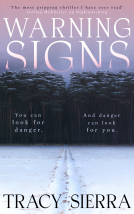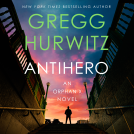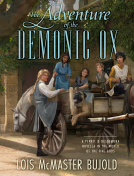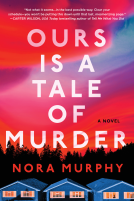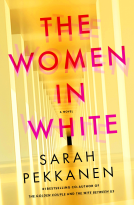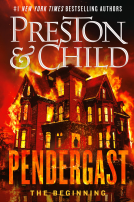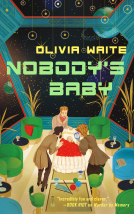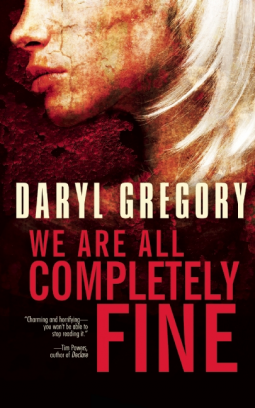
We Are All Completely Fine
by Daryl Gregory
This title was previously available on NetGalley and is now archived.
Send NetGalley books directly to your Kindle or Kindle app
1
To read on a Kindle or Kindle app, please add kindle@netgalley.com as an approved email address to receive files in your Amazon account. Click here for step-by-step instructions.
2
Also find your Kindle email address within your Amazon account, and enter it here.
Pub Date Aug 12 2014 | Archive Date Apr 15 2015
Description
2014 Nebula Award Nominee
"This complex novel—scathingly funny, horrific yet
oddly inspiring—constructs a seductive puzzle . . . dark, degenerate, and
sublime."
—Publishers Weekly, starred review
Harrison was the Monster Detective, a storybook hero. Now he’s in his mid-thirties, and spends most of his time popping pills and not sleeping. Stan became a minor celebrity after being partially eaten by cannibals. Barbara is haunted by unreadable messages carved upon her bones. Greta may or may not be a mass-murdering arsonist. Martin never takes off his sunglasses. Never.
No one believes the extent of their horrific tales, not until they are sought out by psychotherapist Dr. Jan Sayer. What happens when these seemingly-insane outcasts form a support group? Together they must discover which monsters they face are within—and which are lurking in plain sight.
A Note From the Publisher
Advance Praise
“Charming and horrifying—you won't be able to stop reading it.”
—Tim Powers, award-winning author of Declare and The Stress of Her Regard
“Clever, and filled with the creeping dread of what’s in the flickering shadow next to you and what’s just around the corner that suffuses the best horror. I loved it.”
—Ellen Datlow, award-winning editor of The Best Horror of the Year series
“This is a labyrinth of a story, intricate as a spider’s web—and
like a spider’s web, each piece informs the whole. Beautiful.”
—Seanan McGuire, author of the October Daye series and Half-Off Ragnarok
“Daryl Gregory's We
Are Completely Fine is bitchin’ fun and as wicked and strange as a
motorcycle leap through a ring of fire without your pants on. Loved it.”
—Joe R. Lansdale, author of Cold in July and the Hap and Leonard series
“A superb, haunting tale by one of our very best writers.
Gregory’s characters are already in therapy; you may want to join them after
reading this spicy, disturbing mélange.”
—Robert J. Sawyer, Hugo Award-winning author of Red Planet Blues
Marketing Plan
Consumer and trade advertising including Locus and SciFi Magazine
Appearances at major genre conventions including ICFA, the Nebula Award Weekend, and the World Fantasy Convention
Pre-order promotion with free content and via genre review sites, book blogs, and Amazon blogs
Planned book giveaways on Goodreads, Tor.com and other online outlets
Promotion on author's website and social media
Available Editions
| EDITION | Other Format |
| ISBN | 9781616961718 |
| PRICE | $14.95 (USD) |
Links
Average rating from 105 members
Featured Reviews
 Daniel B, Reviewer
Daniel B, Reviewer
Daryl Gregory is great at spinning together fantastic stories with a clever and realistic twist.
What happens after the horrors are over, the heroes have beaten back the forces of darkness and rescued the survivors (inevitably, a lone survivor)? The same thing that would happen after any traumatic event that you really could have no control over and that you'd have to learn how to reconcile. You'd need therapy, of course.
Several 'lone survivors' and a 'hero' are brought together for group therapy sessions and the results are humorous and sad and, I expect, does quite a bit of justice to the healing process in group therapy.
 Reviewer 76613
Reviewer 76613
I encounter quite a lot of episodic hard-boiled urban fantasy, and one constant source of entertainment (and aggravation) is wondering what happens to the minor characters after they are abandoned by the camera. Take the television show Supernatural. After the Winchesters roll out of town, what actually happens to Screaming Girl #1 who loses her father/boyfriend/girlfriend to an angry pumpkin man or psychotic razor-hands or grabby ghost? Or what about the bystanders who were unlucky enough to have a car on the street during Harry Dresden’s rampage in Dead Beat? (Imagine the insurance claims.) Or all those unfortunate churchgoing ladies in Mike Carey’s Vicious Circle? Certainly anyone who ran into a fey from the October Daye series would require counselling, but what, exactly, would one tell one’s therapist?
We Are All Completely Fine explores the lives of the survivors of supernatural situations, but in a less absurdist fashion than other sorcerous self-helpers that I have encountered. The story begins from the perspective of Harrison, a nihilistic ex-monster-hunter, as he vacillates outside of a psychologist’s office, not quite ready to step inside and join a newly formed group therapy. Harrison might not have much faith in therapy, but then, this is a rather unique group, for each member has been touched by the preternatural: an apparently self-possessed but inwardly tormented housewife, an elderly man still fixated upon a childhood trauma, a young man who retreats into a world of his making, and a silent, enigmatic girl with haunted eyes.
The novella is a little unusual in everything from perspective to structure. We Are All Completely Fine starts each chapter in first person plural, spoken as if by an unidentified member of the group, then switches to third person limited. I’ve only seen this style a few times, but I think it adds an interesting effect here, strengthening the sense of the group as a sentient entity in its own right. As one might expect, much of the novella is simply the slow unravelling of the characters’ stories. The psychological aspect is thoughtful without ever becoming pretentious, and I loved the occasional glints of humour. While some of the characters never quite became three-dimensional for me, others came to life. One of the surprisingly empathetic characters, to me, was Stan, the elderly amputee who lost so much that he turned his victimhood into his identity. He is a talker, but he uses his words, his stories and complaints and pleas for attention, as a shield. Unsurprisingly, my favourite of the bunch was the taciturn, saturnine, guilt-ridden, self-destructive Harrison. Harrison’s interaction with the psychologist are constantly entertaining:
"She believed that people were captains of their own destiny. He agreed, as long as it was understood that every captain was destined to go down with the ship, and there wasn't a damned thing you could do about it."
I was also amused by Harrison’s origin story, which involves a seaside town called “Dunnsmouth,” a name rather reminiscent of the classic “Innsmouth.”
Given the basic premise, it’s unsurprising that the author opted for something of a kitchen-sink’d Lovecraftian magic, but there were a few creative touches that I adored. I was a little dissatisfied with the ending, which seemed too neat in some areas and slightly plotholed in others, but I think much of this was due to the constraints imposed by the length.
In fact, the biggest drawback, in my opinion, was that it was a novella rather than a novel, but at least the short length meant that I was able to enjoy a reread. I would love to revisit the characters and world, and I have high hopes of a sequel (pretty please?). We Are All Completely Fine will not be a good fit for everyone; after all, its major theme is coming to terms with horror-movie-style trauma. There are some graphic scenes and extensive discussions of mutilation, and I’d definitely slap a trigger warning on it. However, if you’re looking for something a little different and with a psychological bent, I’d definitely recommend it.
~4.5 Cross-posted on Goodreads (https://www.goodreads.com/review/show/982786432)
Excerpted from my blog at pagefault.booklikes.com.
**Note: Quotes are taken from an uncorrected proof and may therefore not reflect the final manuscript. They do, however, provide wonderful examples of the charm and mood of the book as a whole.**
 Jenny H, Media/Journalist
Jenny H, Media/Journalist
Note: I received a digital galley of We Are All Completely Fine from the publisher for review consideration.
DARYL GREGORY AUTHOR DISCOVERY YEAR CONTINUES. Not only has Daryl Gregory produced another fine piece of science fiction — this one a novella — but I have at last discovered why I love his books so much. It’s cause his wife is a psychologist! (He thanks her in the acknowledgements.) No wonder Gregory wrote about crazy people so brilliantly in Afterparty. No wonder he is always writing about confronting impossible, insane situations with the only available tools (science, therapy) and knowing all along that those tools are nowhere near adequate to the task. What do I love even more than creepy, inventive science fiction? Creepy, inventive science fiction informed by a background in psychology!
Ahem. Sorry. I’ll try to control myself.
The therapy group is composed of sole survivors: the only ones to survive horrific, supernatural incidents. At first only Stan will speak openly about his story, about the cannibals (demon cannibals?) who tied him and his comrades up for weeks and ate them, bit by bit, limb by limb. And the group knows a little — or thinks it does — about Harrison, who was, long ago, the model for a series of books about a teenaged monster-killing hero. Martin refuses to take off his glasses. Greta never lets anyone catch a glimpse of her skin, and Barbara will only say that she was attacked twenty years ago. The group leader, Dr. Jan Sayer, doesn’t push them for more. She’ll let the stories come in their own time.
Your question at this point may be, Do we find out gradually what happened to each member of the group, and is it inventively horrible in each case, and do they ultimately team up to do a mission together to fight against the darkness in their own small way? And the answer is, yes. That is exactly how it goes down. It’s THE BEST. If this were the pilot episode of a show on Syfy, I would set up a Change.org petition for six seasons and a movie.
The characters’ backstories are revealed in fits and starts, sometimes in great detail and sometimes in very little. Like the characters themselves, we aren’t privy to knowing why these things happened to them; only that they happened, and now they are part of that character’s emotional landscape, and must be dealt with. Without some of the details I wanted (who were the Weavers before the demon hybrid thing showed up? How did Barbara come within the orbit of the Scrimshander, and how did she get away?), I kept thinking how much I’d enjoy reading a full book about any of these characters in their lives before they join the group (or, in Martin’s case, after).
Some quick vague spoilers in this section only: I love that we find out at the end that Dr. Sayer has a story of her own to tell. Her own fight not to be defined by her damage turns out to include helping other people to heal from theirs. That is a true thing from real life. Sometimes people respond to the unimaginable pain they have experienced with this exact kind of generosity and grace, and it is remarkable and moving to me.
My only tiny gripe is that the chapters begin with a “we” section, where the group is speaking collectively about itself. This didn’t really work for me. Gregory doesn’t manage to make that “we” feel like an integrated part of the rest of the book, which is all narrated in third person, often from Harrison’s point of view and with detours into Barbara’s and Martin’s.
But really, that’s a small gripe for a novella I overwhelmingly loved. I was heartbroken when it ended, especially as it means that there will be no more new Daryl Gregory for me for a while. Up until now I have had a new Daryl Gregory thing every two months or so. I should have held off on reading one of his books, and saved it for a rainy day. I will just have to do some rereading.
 karina l, Reviewer
karina l, Reviewer
"We are all completely fine" kept me reading until I ran out of book, which was rather later than my sore eyeballs would have preferred. With that in mind, it's a good thing it wasn't a longer story. Else I would very likely complain about it lacking a few hundred pages. The ending does seem to accomodate a sequel, though - which would be very welcome.
 Eric C, Media/Journalist
Eric C, Media/Journalist
I was first introduced to Daryl Gregory via his recent book AFTERPARTY, after hearing rave reviews by Sarah Chorn of Bookworm Blues. I really enjoyed AFTERPARTY, so when I got the chance to review WE ARE ALL COMPLETELY FINE, I jumped at the chance.
WE ARE ALL COMPLETELY FINE is the story of a support group for a very special set of victims. To quote the book blurb,
Harrison is the Monster Detective, a storybook hero. Now he’s in his mid-thirties and spends most of his time not sleeping. Stan became a minor celebrity after being partially eaten by cannibals. Barbara is haunted by the messages carved upon her bones. Greta may or may not be a mass-murdering arsonist. And for some reason, Martin never takes off his sunglasses.
Together, the group explores how people react to trauma: cynicism, depression, anger, and paranoia. They, and we, see the benefits and costs of fear–how it can motivate us and trap us.
WE ARE ALL COMPLETELY FINE mixes horror, mystery, fantasy, and more. Similarly, Gregory blends points of view, from first to third, to back again. This blending and refracting adds to the story’s unsettling nature. A dropped comment a chapter ago takes on a more sinister meaning when, two chapters later, we read from a different point of view. Harm and damage and survival take on more nuanced, complex meanings as the story progresses.
And what’s all the more impressive is that this is a novella–only 182 pages. I didn’t realize this going into the story. I started reading it while riding in the car from Nashville to DC. Normally when I read in the car, I read for about 10-15 minutes, then stop, then start again 30 minutes later. Not this time. I read it straight through. I couldn’t put it down.
Gregory is able to convey a lot of depth with quick cuts and small hints that build into a larger, interwoven story that hints at something even larger and more sinister. It’s an impressive feat. I would say it’s a fun read, but that is only how I view it now, days later. After closing the book, I had to start my driving shift, and to be honest, I couldn’t shake the story right away. It’s weird imagery and techniques stuck with me. And in my opinion, that’s the mark of a great read.
 Sharon T, Reviewer
Sharon T, Reviewer
The internet has been telling me to read Daniel Gregory. Possibly the internet primarily consists of Jenny at Reading the End, but I don't keep track of how things end up on my to-read list, so we can just assume that the internet is to blame. On Wednesday I read her review of We Are All Completely Fine and immediately requested a copy fro Netgalley. They sent it, I started reading it, and I read it in one big gulp last night. She was right; I should be reading this guy.
I think I was turned off because his books are hard to blurb--a combination between complex world-building that doesn't read well in succinct, back-cover layout, and somewhat grim, grotesque images that seem offputting without the context of a gripping story. Check the blurb for The Devil's Alphabet; long, confusing, and not actually that appealing.
But we all know what a good author can do with a complicated story.
We Are All Complete Fine is a novella, and its simplicity belies all that's going on here. First, the premise is so intuitive that I wish there were more stories like it; this is a support group for people with...unusual histories. Really, it's made up of five people who have survived, essentially, horror movies. I won't give them away, because the unfolding stories are half of the book, but the point is, if you are that one person who survives to the end of The Ring or The Hills Have Eyes or whatever horror movie I haven't seen but seriously, how do you go on?
There's always this point made at the beginning of a movie like that of how normal life is, how this person is Just Like You, living in a world where Weird Things don't happen, and then suddenly reality changes for them and they are in a horror movie. There would be some emotional fallout there, right? This is what I always liked about The Hunger Games, that there's no pretense that you come out of that just tougher, stronger, more cynical. You also come out confused, and broken, and miserable.
So we have a therapy group. And I mean "we" literally, because each chapter is framed in the first person plural, then zooms into the third person singular to follow a character. This was a weakness, only because the group goes from "we" to "they" and back to "we" in each chapter, which is just weak. I know first person plural is tough to pull off, but if you're going to do it, commit to it.
That's my only complaint. It's complicated, rich, creepy as all get out. It's about survivor guilt, but also about how much responsibility we should actually accept for what we suspect or know about, about how small, casual choices can have big repercussions, and how no bystander is completely innocent.
And now I ran out to the library and have more Daryl Gregory on my stack. Because Jenny was right and I should really be reading him.
(Thank you to NetGalley for my review copy of this book.)
Whee! That was awesome! Therapy group, supernatural happenings, monsters, spider webs, trauma, memories - what more could you want really? This therapy group is like no other. This novella had me intrigued and sucked in from the first sentence, I loved the way it unraveled and revealed itself to me until the very end. Fantastic out there fiction.
Picture this. A therapy group. A group of strangers. Everyone is wary of each other. Who wants to talk first? Then one by one the stories come out, the stories that nobody else believes. These are the special people, who have seen things beyond this world and into the next. But why are they meeting together? What is the purpose? Will it help?
This book literally takes you on a journey, one by one we hear the fantastic and often horrific tales of the trauma and events that each therapy group member has experienced, each and every one of them has a story to tell, some more ready than others to share.
It holds back pieces of information so that as you read along bits and pieces start to fall into place, and what seemed irrelevant and disconnected at first suddenly is terribly relevant and makes every bit of sense. It's a wonderful journey to go on.
Each individual character has their own terrible tale, they are here because only their therapist believes them, I mean we don't live in a world that crosses with the supernatural right? Wrong! So very wrong! The lines are blurry, are you willing to cross them?
For a short novella this packed a lot in and I absolutely loved it, I had no idea of where the book was headed but thought it was fantastic where it ended up. Very clever creative imagination at work from this author. Each individual tale is fascinating and different, I read this book and did not stop until the last word.
The book brings in aspects of the paranormal/supernatural world but cleverly, nothing is overt. Who are these people? Why are the meeting together? Is there a purpose at all? Possibly. I am not telling. You NEED to read it yourself. Oh yes indeedy, this is a fun yet slightly chilling and horrifying read.
There is some fantastic imagery and events at the end, and the last few pages I did not see coming and it left me feeling somewhat disturbed but happy. Yes, I don't understand it either.
4.5 stars from me, I wanted it to be longer, a full novel. I could see it as a fantastic movie or TV mini-series also. So go on, enter the world of the strange and terrifying, I did.
 Sarah C, Reviewer
Sarah C, Reviewer
We Are All Completely Fine is a darkly compelling novella that chronicles the ongoing group therapy sessions of survivors of some truly hideous supernatural encounters. The question is, to what degree have any of them truly 'survived' their experiences?
There was so much to love about this book. How plain CREEPY it is, is a huge draw. When I read about what was in the photographs towards the end of the book I'm sure I actually physically shivered! (And that doesn't often happen for me.) Some of these chilling moments were actually surprises; which when you look back on it, you can detect how the author subtly misdirected you. Daryl Gregory knows his stuff.
I enjoyed how each character had their own voice, in addition to how diverse they were. Although the premise is supernatural, it is a clear reminder that people from all walks of life may need supporting now and then.
There are so many other back stories and encounters alluded to (admittedly more so with some characters than others) that surely there is no way this book could not be followed up with a series or sequel? I felt the ending was more action packed, which contrasted greatly in comparison to the more thoughtful tone of the rest of the story, which was the one aspect I wasn't as keen on.
I devoured this novella in two tense but captivating hours and would willingly offer up more of time to read on!
Disclaimer: I received a copy of this book from netgalley in exchange for an honest review.
4.5
 Kristin C, Media/Journalist
Kristin C, Media/Journalist
Dr. Jan Sayer has gathered together a very interesting bunch for her new group therapy session. There’s Harrison, an aging Monster Hunter, and Barbara, who is still struggling through life, and the trappings of a family, 20 years after the Scrimshander carved his handiwork on her bones. There’s Stan, who is missing limbs because of his ordeal with the cannibalistic Weaver family so many years ago, and Martin, who wears VR goggles that, to him, reveal the presence of shadowy lurkers (which they call “dwellers”) that not only haunt the streets but nearly every aspect of his life. And then there is Greta, covered with scars, and the quietest and most enigmatic of the bunch. Martin is convinced there’s something definitely “off” about Greta…and there is, but it’s not quite what he thinks.
The story unfolds, at the beginning, like any group therapy session would, with the telling of each individual’s story, in fits and starts, until the reader gets a pretty good idea of where everyone is coming from, at least you’ll think you do. Each story is fascinating, and certainly terrifying, but it’s all building toward Greta, whose story has never really ended, and when she finally reveals it, it’s a punch in the gut in its insidiousness, and also its potential for wide scale disaster. It’s disaster that the group will eventually attempt to avert, and watching them come together to do it is a joy to behold. I fell in love with each of these damaged people, and as fragile as they are, they’re equally heroic, and the strength they’ve found in order to keep living after such trauma is haunting, and oddly inspiring.
Harrison is probably one of my favorite characters.He’s considered a hero, and in fact feels compelled to be heroic, but internally feels that he may be a bit of a coward. Not so, and he proves it admirably, if a bit clumsily. All of these characters winnowed their way under my skin. I didn’t really know that I loved them so much until the bad stuff hit the fan, but then, Gregory has always been good at the little things, the subtle things, even as not so subtle stuff starts happening. This is a creepy book, but it’s also oddly charming, but then, I love stories about broken people that find comfort in each other. There are also a few surprises at the end that are creepy and sweet at the same time. How does he do that?? I suppose much the same way he manages to make a book that comes in under 300 pages so nuanced and complex. This is a scary, funny, bittersweet, fantastic book, and Gregory’s imagination is twisted and wonderful. Good thing we’ve got Harrison Squared coming up in 2015. I’ll be the first in line.
 Carol S, Reviewer
Carol S, Reviewer
We Are All Completely Fine is a fabulous, complicated novella about a group of five damaged people and the psychologist who brings them together. Dr. Jan claims she wants to help them, but the five members have been through various supernatural traumas and are accustomed to disbelief when they share their unlikely histories: “Every small group was a chemistry experiment and the procedure was always the same: bring together a group of volatile elements, put them in a tightly enclosed space, and stir. The result was never a stable compound, but sometimes you arrived at something capable of doing hard work, like a poison that killed cancer cells. And sometimes you get a bomb.“
The story becomes almost a character study as we find out more about each person, and the strange situations they’ve survived: “After all, one of the issue we had in common was that we each though we were unique. Not just survivors, but sole survivors. We wore our scars like badges.” But Gregory wisely stays away from historical info-dumping and instead allows their stories to be shared in the course of conversation. As they trust–and challenge–each other, they discover they have more in common than they expected. Shortly after, the pace catapults forward, focusing on immediate danger.
Gregory writes in ways that touch the heart of what it means to be human. He also writes in ways that are horrorific, surprising, and humorous. We Are All Completely Fine is like a psychotherapy text in comic book form, making it accessible and applicable in ways one would have never considered. There are moments that make me squirm, but they are done with such sophistication that Gregory brings me to a place of compassion.
“She believed that people were captains of their own destiny. He agreed, as long as it was understood that every captain was destined to go down with the ship, and there wasn’t a damned thing you could do about it.“
Gregory is fast becoming one of my go-to authors, with stories I can pick up in almost any mood and end up deliciously satisfied. I want something with humor? Here: “And then he wondered what the collective noun was for psychologists: a shortage of shrinks? A confession of counselors?” Or profound: “What the patients didn’t understand was that this was the human condition. The group members’ horrific experiences had not exempted them from existential crises, only exaggerated them.” Or do I need a diverting plot in a genre-bender setting to distract me from my everyday life? Gregory provides that too. I re-read this today thinking about my review, and was no less entertained or captivated–but I did highlight another handful of lovely phrases. I highly recommend it.
“Also, I might be entertaining the idea of tamping down my nihilism. Just a bit. Not because life is not meaningless–I think that’s inarguable. It’s just that the constant awareness of its pointlessness is exhausting. I wouldn’t mind being oblivious again. I’d love to feel the wind in my face and think, just for a minute, that I’m not going to crash into the rocks.“
Many, many thanks to NetGalley and Tachyon Publications for a review copy, and to Carly for introducing me to Gregory’s works.
What happens to the surviving victims after the monsters have been thwarted? Life in shambles, friends dead, and scars from an experience that no one would believe. How do you go on knowing that the monsters are real?
Dr. Jan Sayer seeks out the survivors for reasons of her own. Stan, once a minor celebrity after his rescue from cannibals, now a maimed old man treated as a nuisance. Harrison's experiences in Dunnsmouth were immortalized in books about a child monster killer. Barbara is haunted by a message literally etched on to her bones. Martin only ever views the world through his sunglasses, a filtered augmented reality. Greta's entire body is a canvas of symbols carved into her skin.
There is something almost painfully intimate about this story. We're learning about these deeply damaged individuals not through their life or as they surmount challenges, but largely through a series of group therapy sessions. The story is told through their fears and obsessions, rather than their actions.
What happens after your survive the monsters and the attention fades away. Can you resume your life? And have you really escaped?
Captivating read, my only complaint is the brevity made me wanting more.
 Scott W, Reviewer
Scott W, Reviewer
We Are All Completely Fine has an intriguing premise: a group therapy session made up of lone survivors of various supernatural attacks. When the blood-covered girl, beaten but still standing, stumbles in to the light at the end of a horror movie, what would her life be like after the credits roll? The answer Daryl Gregory provides is: not so great.
The perspective shifts by chapter to a different member of the group. Each have their own secrets that are slowly revealed and start to intersect with the other patients. Events move along at a steady pace, and as things progressed I could not put it down.
The length of We Are All Completely Fine works in its favor as well. This is a longish novella that can be read in one sitting. Make sure you have 2-3 hours free once you start because you will want to finish it. Despite the low page count the story does not feel rushed. Each character gets time to shine and form a connection with the reader.
I feel like I am babbling at this point. I enjoyed this book so much it is hard to put it in to words. Daryl Gregory has made me a fan with this one. Just go read it! 5 stars, highest recommendation.
I listened to this one on audio and the narrator did an excellent job. I think that she may have done a Palahniuk in the past because for some reason it reminded me of his work and I don’t know if it was the cadence or the writing. At any rate, this was a very good and entertaining novella. Original and disturbing.
I was drawn into this one right away and truly amazed how the author managed to create such depth of character(s) in a short novella format. Very well written with tight prose, realistic dialog and brooding atmosphere. I need to read more from Mr. Gregory. Solid 4.5 Stars and Highly Recommended!
 Cynthia B, Reviewer
Cynthia B, Reviewer
I love this novella! It's a great surprise when a complete story with fully fleshed out characters is so well done in so few pages.
I was drawn to it mainly because Daryl Gregory is the author my favorite zombie book - also one of my favorite books of any genre - Raising Stony Mayhall. He has a talent for making the extraordinary ordinary, and I mean that as a compliment. His horror is beautiful and human and entirely believable, which makes it so much scarier.
Nothing could be more ordinary than a group of trauma survivors meeting with a psychologist. Unless all their trauma has an otherworldly connection, - a connection that perhaps hasn't been broken. To reveal any more would take away too much in such a short work, so I won't comment further.
If you are as caught up as I was in Harrison's story, Gregory has a full length novel of Harrison's experience in Dunnsmouth coming out March 24, 2015 - Harrison Squared.
Don't read this if you still look under the bed for monsters, because Daryl Gregory leaves you with no doubt that they are there, and over there and out there. It's just a matter of time until they're here.
Thank you NetGalley and Tachyon Publications for the free copy of this book in exchange for an honest review.
 Terry W, Reviewer
Terry W, Reviewer
My favorite novella nominated for a 2014 Nebula Award for best novella, is Daryl Gregory’s We Are All Completely Fine. It’s inspired by Lovecraft and is firmly set in the Cthulhu Mythos but it isn’t by any means a pastiche; the style is fresh and new, and the story is original despite a few familiar elements. I was taken by Gregory’s exploration of how small groups work, particularly in the context of group psychotherapy. Dr. Jan Sayer has assembled a group of deeply damaged individuals who have survived horrible experiences, many of them with especially depraved serial killers: “If they’d gone through a fraction of the shit that Harrison had,” one group member thinks, “that had to be Very Special Trauma indeed. The traumas of most of the group members have had something to do with monsters that do not seem to be part of our consensual reality. And the monsters haven’t left for good. Gregory works out how the group bonds, from a fairly hostile beginning, ultimately facing one of the monsters directly. It’s written so matter-of-factly that one hardly doubts the sanity of any of these group members despite the outrageous things they say they have experienced, in a shifting first person plural voice that shifts from person to person, but often stays in Harrison’s voice. Harrison, we are told, was at Dunnsmouth ten years ago, and though we are not told what happened there, we are given to believe that it was horrible indeed. (“Dunnsmouth” is a particularly fine touch, combining the names of two places in which Lovecraft set his stories, Dunwich and Innsmouth.) The characters are all fully imagined, and they all have extensive back stories that are dropped into the narrative as needed, without ever bogging down the action. I plan to read more Gregory now, especially Harrison Squared, which came out this past March and deals with Harrison’s earlier adventures.
It’s unusual for an explicitly horror novella to be chosen for the Nebula Award, though several pieces brushing up against horror have won (Neil Gaiman’s Coraline, for instance, and Harlan Ellison’s “A Boy and His Dog”). But this should be the year, in my estimation, despite the fact that Gregory is facing stiff competition, especially from Rachel Swirsky and Ken Liu. We’ll know in a few hours if I’m right, but even if I’m not, I recommend all these novellas for your close reading and enjoyment.
